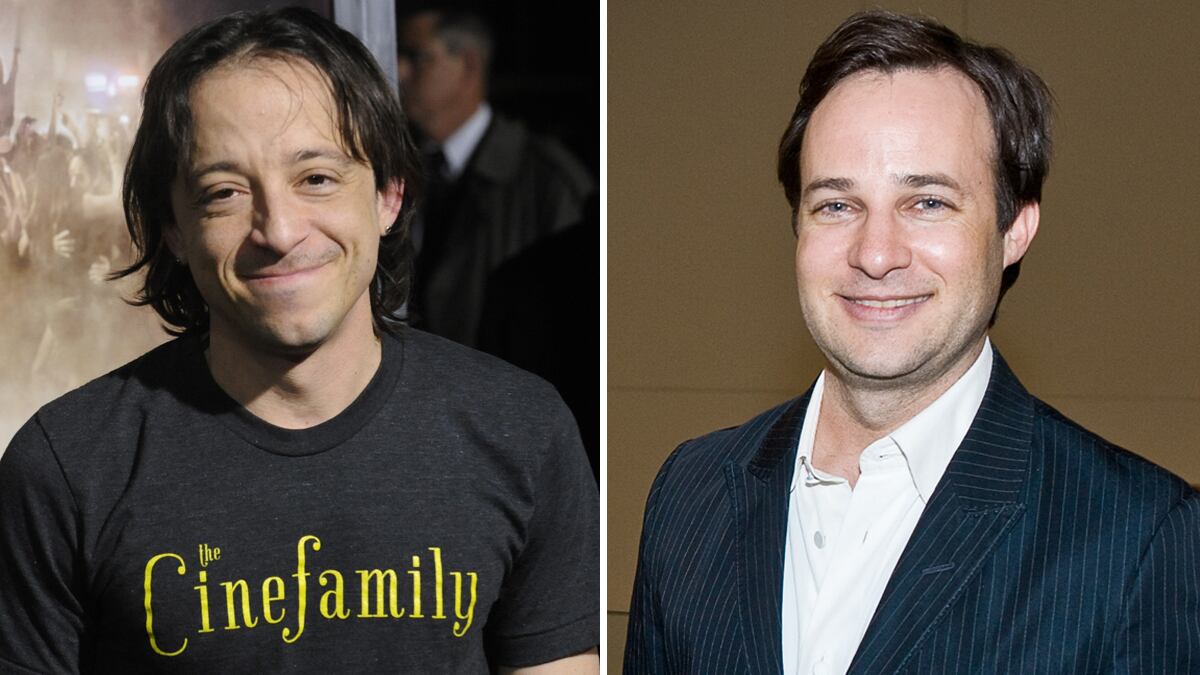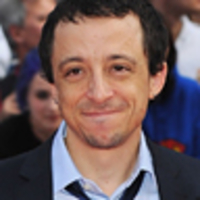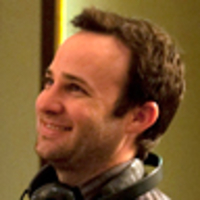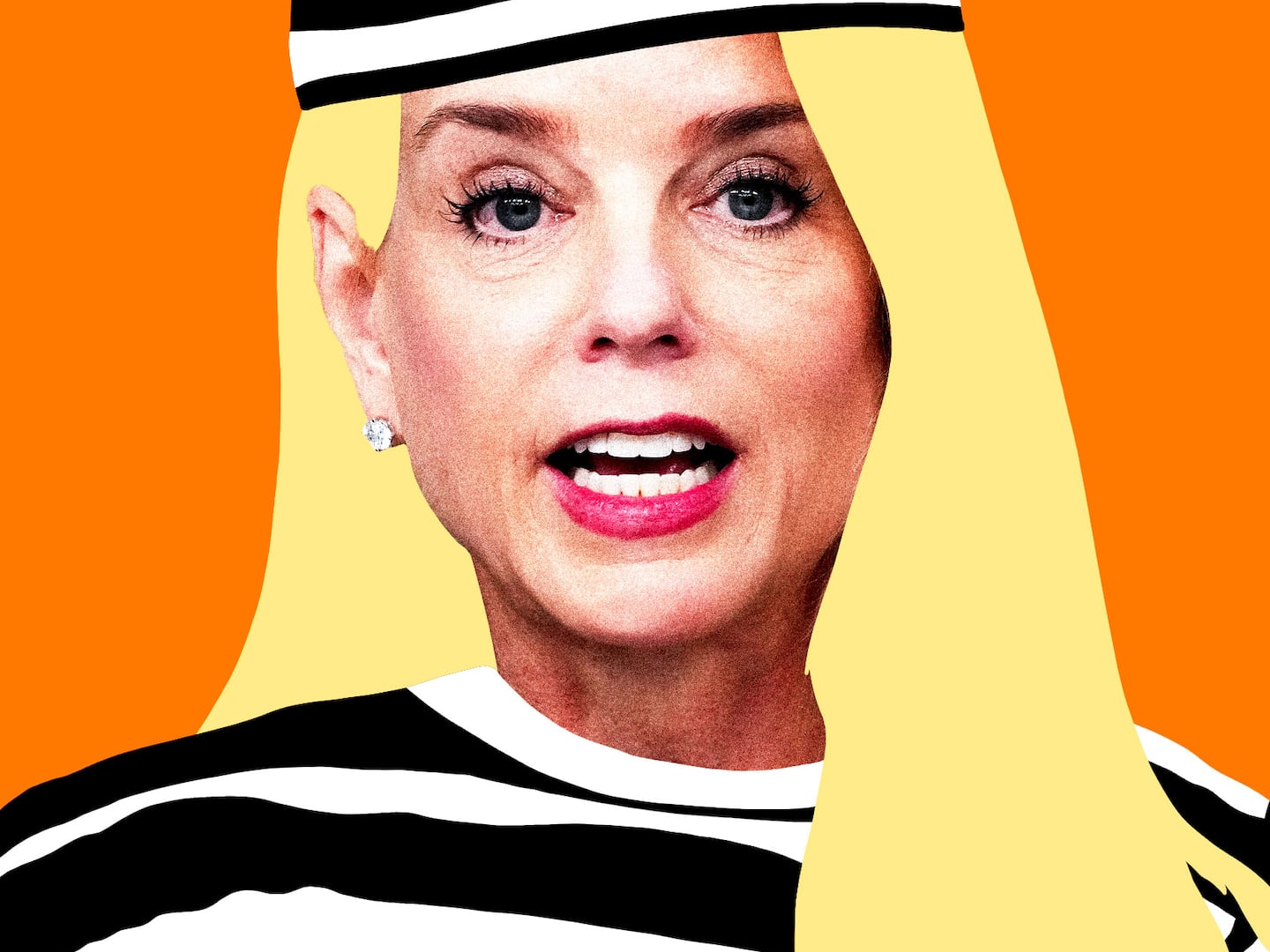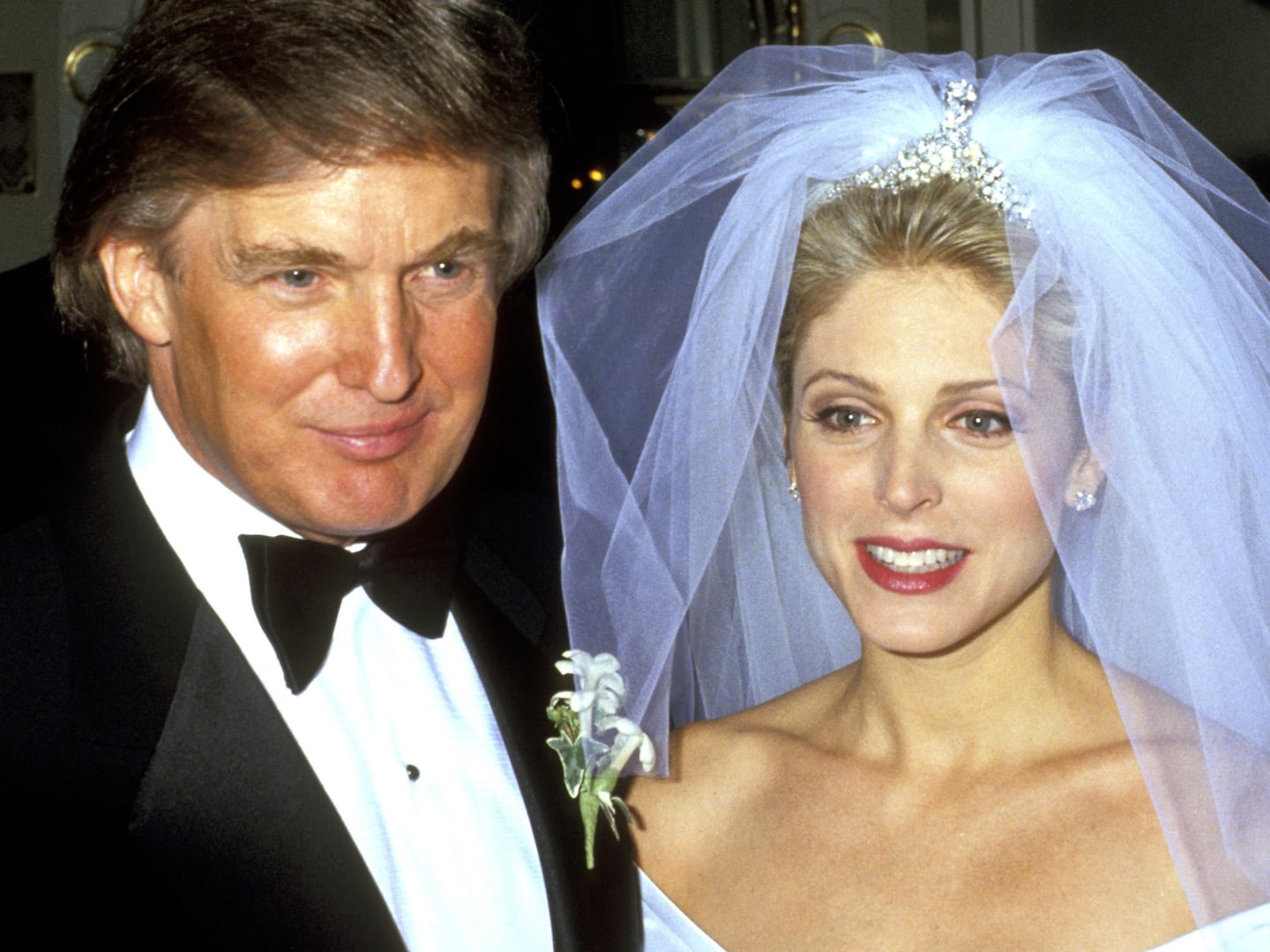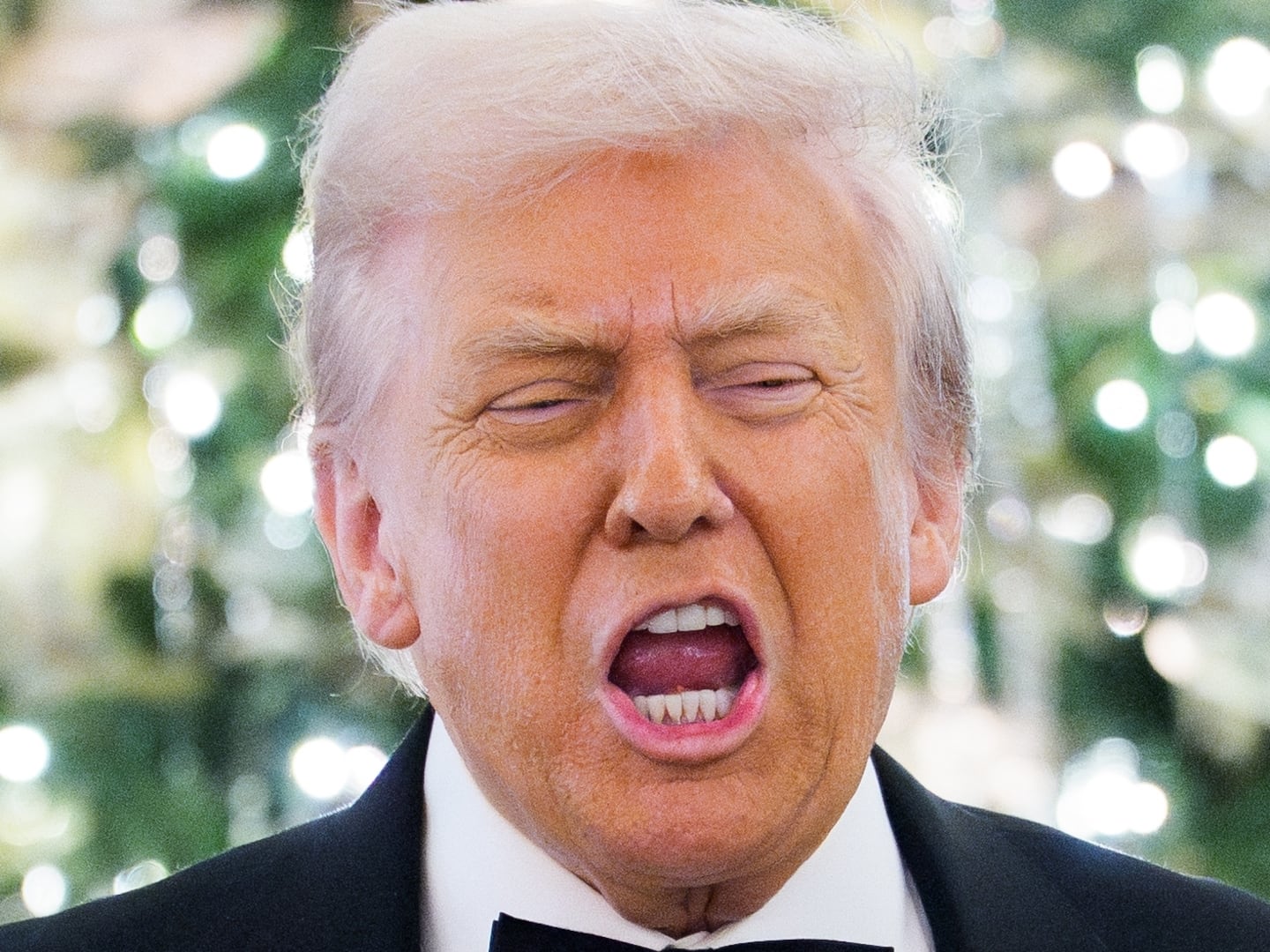Danny Strong, 37, the screenwriter of HBO’s Game Change (premiering Saturday at 9 p.m.), might be best known for his roles as Jonathan on Buffy the Vampire Slayer and as college newspaper editor Doyle on Gilmore Girls—and he was nominated for an Emmy for writing 2008’s Recount. Michael Bacall, 39, the writer of controversial “found footage” film Project X, Scott Pilgrim vs. the World, and the upcoming 21 Jump Street (March 16), also cut his teeth as a character actor, appearing on Buffy, The Wonder Years, and in many more TV shows and films before moving into writing.
Both grew up in or around Los Angeles and competed for some of the same roles as actors. The Daily Beast caught up with the two, friends for over a decade, as they interviewed each other about dealing with controversy, posing for pictures with a gnome, and working with Sydney Pollack. What follows is a condensed transcript of their interview.
Michael Bacall: Danny, do you remember what we were auditioning for when we met?
Danny Strong: I remember seeing you at various commercial auditions, because you had done a lot of TV work and I had done nothing. Basically our entire career was me trying to catch up to you. That’s how we became friends—we were auditioning against each other so much, and it came down to the two of us quite a bit, so we exchanged phone numbers so that we could tell if the other guy got the role. One of the worst parts of being an actor is just not knowing, and once you find out you didn’t get the role, you can usually let it go pretty quickly, but it’s that interim of waiting that’s the toughest part. Why did you not tell me about the audition for The Norm Show? You kept that from me because you didn’t want me there. Is that true?

Bacall: That is true, I didn’t tell you because I wanted to do that job and it was a much better role for you than it was for me.
Strong: I bet you didn’t think I was still harboring that one did you? I’ll never let it go. And I’m still bitter about the time you beat me out for Sister, Sister. I definitely started writing because you started writing and had gotten so much success so quickly, and I was once again insanely jealous that I was at commercial auditions and you were meeting with producers and studio executives. What was it that got you started writing in the first place?
Bacall: Auditioning for really crappy roles. I mean, sorry, the desire to be a writer. It was both; I always wanted to write. I didn’t always know that I wanted to write screenplays, but after probably about 10 years in the business and auditioning for all kinds of things, some good, most bad, I think we both had those moments, especially reading for younger roles, thinking I can do way better than this. And even tried to improv at times and make dialogue for kids sound a little more like kids and often be criticized for that in the room. I remember auditioning for a sitcom once and the dialogue was god-awful and I tried to improv a little bit in the room and the feedback was very harsh from my agent saying, “Try not to improve comedy when the writer of the sitcom is in the room.” That may have been one point at which I decided I should try writing. Yet it came out of also not working as an actor and wanting to write a little for myself. What about you?
Strong: A lot of it had to do with you, seeing you taking all these meetings. You were really encouraging me to do it, you kept pushing me, you said, “You really need to start writing, you really should do this,” and it was a combination of that and being so just being at the mercy of everyone else–waiting for the phone to ring, waiting for my agent to call to tell me that I didn’t get the audition, didn’t get the callback, or didn’t get the job. And then once or twice a year you actually do get the job, and that wasn’t even fun for me anymore because I was like “Of course I got the job, I should be getting more jobs.” It wouldn’t be positive it would be like this bitter, bitter negative, and then there were a few movies that really inspired me right around that time—Election, and Swingers. I remember watching Election and being so inspired by the tone and style of it and thinking I want to do that, I want to write something like that. And Swingers too, it was essentially our lives, except we weren’t that cool–well I wasn’t that cool–but we were more successful than the characters in those movies, ‘cause those guys didn’t have much going. It felt very real, like what my experience was and to see someone take that and write a script and then have this whole career blossom from that, I was really inspired by that, both artistically and from a business point of view. Those were the things that really got me going along with literally being jealous of you, and your encouragement.
Bacall: With the recent kerfuffle over Game Change, which is amazing, do you enjoy the controversy, or does it give you a little bit of a stomachache?
Strong: Both. I love how much attention the film is getting, and I’m perfectly comfortable defending the film, because the film is completely true, and it’s being attacked by people who haven’t seen the film. Regardless, it’s still stressful. I’ve been doing live news shows. I did CNN this morning, I did it last week, I did Charlie Rose last night… I’ve never done anything like this before, and I don’t even know what shirt to wear. I’m like, “Am I not supposed wear a striped shirt? What kind of tie?” and I remember Broadcast News, that movie with William Hurt, and I’m trying to remember lessons from Broadcast News, but I’m like too lazy to go rent it, although I don’t even think you can rent movies anymore. I’m trying to figure out these basic logistics, but then when I actually get on the show and once I start talking, I’m really comfortable talking about this movie because we researched the hell out of it, and it’s really fair and really accurate and the people attacking it, like I said, they haven’t seen it. It’s completely unique because it’s not art, what I’m dealing with right now, and it’s not what I do, day in and day out, and it’s not something that is a part of most projects. This isn’t a common thing that most projects have to deal with, which is somewhat of a political firestorm. In some ways it’s not totally different from defending your scripts and taking notes and having debates in meetings over story. The situation now is far more contentious than any situation I’ve ever been in creatively.
Strong: Was the gnome in Project X based on our experience taking a gnome across Europe?
Bacall: Of course it was.
Strong: We bought a gnome in Paris about 12 years ago. Do you still have him?
Bacall: I do. I’m looking at him right now and he says, “What’s up” and is holding up both of his hands for a double high five. He wants residuals for Urban Legend 2: The Final Cut. Remember I snuck him into that?
Strong: Right. I tried to sneak him into Shriek If You Know What I Did Last Friday the Thirteenth, clearly one of my great triumphs.
Bacall: When you’re on set with actors of the caliber that you’ve been working with, and you hear them reading your dialogue, does it get you high?
Strong: It’s pretty awesome, I’m not going to lie, especially the key scenes, when you’ve got a big scene, or you’ve written a big monologue for someone. Ed Harris has this monologue as John McCain towards the end of the movie and to see, by the seventh or right take, and Jay Roach, the director of this movie, and I were so blown away by what he was doing with this monologue that I remember thinking, I can’t believe I’m sitting here watching Ed Harris, one of America’s great actors, killing a monologue that I wrote. It was just the coolest thing ever. And I have those moments all the time where I’m just like in shock. There’s a scene that Kevin Spacey did in Recount and he was was just so amazing in it, and I was like wow, that’s Kevin Spacey and I wrote that scene. It’s really exciting and I never stop geeking out about it.
Strong: What would you say is your biggest triumph so far?
Bacall: I think setting up my first studio project. It didn’t wind up being the best script I ever wrote, but it was this story about graffiti artists, inspired by a friend of mine who is my favorite graffiti artist and this world famous guy who did this giant piece in the LA River that you can see from space.
Strong: You’ve become one of the biggest comedy writers in Hollywood, and you basically started writing dramas at first. How do you think that happened?
Bacall: I just had a crazy idea for a comedy and went to the desert for a couple weeks and banged out a rough draft of something. I worked on it for a little while and showed it around a little bit. It was just so weird, and had an absurd quality to it and it started making the rounds and got me the opportunity to work with Edgar [Wright] on Scott Pilgrim. I think that started the whole thing. I never intended on being a comedy writer in any way, shape or form. I usually gravitate towards the darker stuff. But it turns out you can be just as dark, if not more, in comedies then in a heavy drama or thriller.
You were fortunate to collaborate with Sydney Pollack on Recount. Is it true you once offered to buy him a giant horse statue?
Strong: I did! I forgot about that. We were in Orlando, Florida, scouting locations and we had had dinner, and a few glasses of wine, and were both going back to our respective hotel rooms, and there was this giant bronze horse statue in front of the hotel, and it was really gaudy. I turn to one of the greatest filmmakers of our time, one of my biggest inspirations, and I said, ‘Sydney, if you do a good job on Recount, I’m going to buy you this statue.” He started laughing so hard that he barreled over. What an amazing experience to get to work with him. It was so sad when he got sick and had to drop out but he still stayed involved with the project as the executive producer. He even gave notes on several cuts of the film, even when he was very sick. He was very dedicated and still very passionate about Recount. I think it was the last movie he ever worked on as a producer, and it was amazing to be in his presence. He’s the kind of person whose career I hope to have someday. I hope to direct, sooner than later, and he was giving me advice, letting me ask questions, he was really fantastic about that. Also, the fact that he has continued to act up until the end of his life. Although acting for me isn’t the focus of my energy, I still very much enjoy doing it and would like to continue doing. What about you? Are you still passionate about acting? Is it something you’re not that interested in?
Bacall: I love acting, it’s a visceral experience that you don’t get with writing. Acting is always my therapy, and writing has taken over that in some regard. But there’s no buzz like the one you get when you walk onto a set and you know you’re going to be in front of a camera. It’s an amazing feeling to try and inhabit a character in that way. I definitely miss it and I’d love to move back in that direction someday, but I think we’re having too much fun doing this right now.
